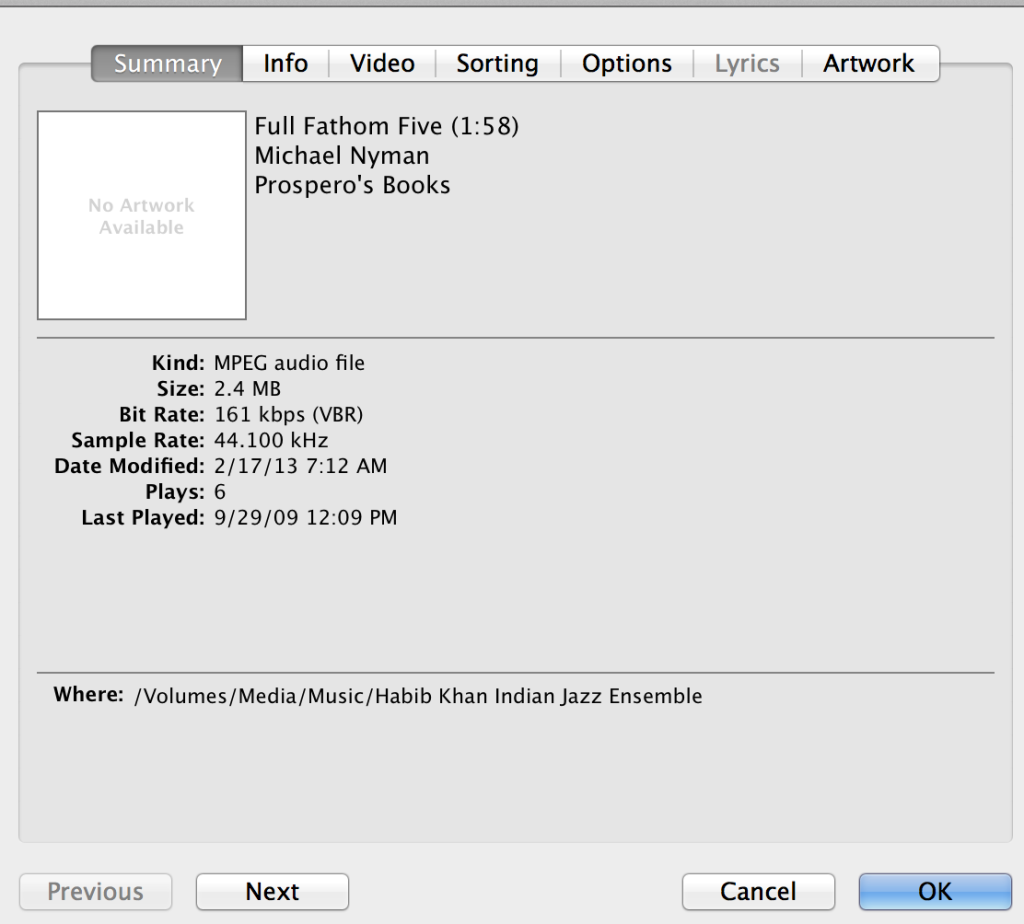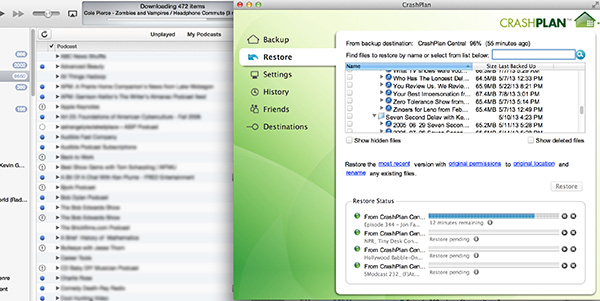My iTunes account was hacked on Friday, I didn’t find out until Sunday night though because that was when I tried to log in to my account after it had happened.
Watch out for these signs (Apple support didn’t even consider that I had been hacked when I contacted them):
The hackers changed my account ID and my e-mail address to something similar to what they had been before but different. This allowed them to charge two $50 iTunes gift certificates to my card without me being notified (because they had changed the e-mail address on the account).
When I tried to log into my account on iTunes, I got weird errors about my account id or password being incorrect. When I tried to recover my password on Apple.com, I got an error saying that my account ID was not in the system. When I tried to get my account ID, they couldn’t find it (since the hackers changed my e-mail address). Of course, I could not log into the support site to try to report the issue since it requires my Apple ID. Luckily I found the iTunes store form that let me contact support via the web without logging in and they were able to tell me that I had changed my account ID and e-mail address. I was able to log into the new ID that the hackers made with my old password, which was really lucky since Apple support was clueless about what had happened.
Why didn’t Apple notify my previous e-mail address when the change was made? That is a basic security process that many other sites use. There is a pretty clear pattern of fraud here as well, account information is changed and then large purchases are immediately made. Shouldn’t Apple be looking for this kind of thing?
I have contacted support to find out if they have a process for dealing with fraud, but I can’t help but feel that Apple’s security is somewhat to blame here. I’ll let you know what Apple suggests I do.
I also posted the above on the Apple support site here. Please spread the word so that others aren’t ripped off.
On a side note, I can’t help but wonder how my account got hacked. I’m pretty wary of phishing scams, and that kind of thing. I’m always extremely careful with this kind of stuff. The only thing that occurs to me is that the same day my iTunes account got hacked, I created an account on artaculous.com. I used the same e-mail address (of course) and in this case I was lazy and used the same password as my iTunes account. I generally try to avoid using the same password twice, but it does get hard to remember them all without reusing them sometimes. I have since gone and changed every password on every site that I have accounts on, just in case. I’m not saying that artaculous.com is some phishing scam, but the coincidence is rather odd…
I’ll update this post as I get more info from Apple. Please add a comment if you have heard about this scam or have more information or suggestions.
[Update: 6/29/09, 11:26pm]
Of course, I changed all my passwords on every site I could find an account on today. My e-mail is full of account update notices from a zillion large and tiny companies… Except Apple. I changed my Apple ID (Twice!), my password (Twice!), my security question, my mailing address. Exactly zero messages from Apple letting me know in case it wasn’t me. This really is pretty weak security on Apple’s part.
[Update: 6/30/09 9:09am]
One of the iTunes gifts certificates had been sent to a gmail address. I tried to find a way on the gmail site to let them know that an account was being used or involved in a crime, but couldn’t find a way to do it. Seems weird because I don’t think you need the certificates mailed to you to use them, just the code. The second certificate had not been mailed or had the e-mail addy cleared. Can’t Apple track the IP address of whomever uses the gift certificates to track back to the people who hacked my account? Will they bother? Still waiting to hear back from Apple on letting them know that my account was hacked. Would call their number or try to see a genius, but I’m in jury duty right now.
[Update: 6/30/09 2:04pm]
Apple has responded (excerpt):
I understand you are concerned about purchases that were made with your iTunes Store account without your permission or knowledge.
I know it can be discouraging when fraudulent charges are made on any type account whether it’s your bank or iTunes.
I urge you to contact your financial institution as soon as possible to inquire about canceling the card or account and removing the unauthorized transactions. You should also ask them to launch an investigation into the security of your account. Your bank or credit card company’s fraud department should then contact the iTunes
Store to resolve this issue. The iTunes Store cannot reverse the charges.
Basically, they are pushing this back onto me to deal with my credit card company on. Not overjoyed with this, but fair enough, most people thought that was what they would do. I am a bit concerned that they believe that my credit card could also have been compromised because of this. I thought that my credit card info wasn’t exposed. If credit card info is exposed through iTunes and their security is so lax, I’m going to be wary of giving them any info in the future. I’m also concerned that they aren’t saying that they will do anything to pursue the person who did this. I would like to feel that Apple actually cares about this instead of just blowing it off.
[Update 6/30/09 10:36pm]
Found these links with more info about iTunes account hacks:
[Update 7/2/2009 9:43am]
Apple (correctly) disabled my iTunes account when I reported that it was hacked. They didn’t actually tell me this though, so I didn’t find out until I tried to use it to update my iPhone apps. What did they need to re-enable it? My billing address. Where was my billing address info stored? In my iTunes account. Since that was pretty unlikely to change after a hack, it seems a pretty weak way to verify my identity. I pointed that out in my return mail, but so far iTunes support has ignored all my questions and comments in my messages to them. I guess that is policy, but also a bit lame. I also may have figured out why the hackers didn’t change my iTunes password. I did find a message from Apple in my spam folder notifying me that my password had changed (from when I changed it after getting my account back).
There was enough info in my account that I’ve had to cancel my credit card, and I’m going to need to be extra vigilant for identity theft moving forward. Since then, I’ve changed my payment method to none in the iTunes store. I may have to enter credit card info each time, but that now seems like a minor inconvenience. I have also changed all my other info to be completely bogus so that if someone does hack it again, they won’t have any useful info on me. Why does Apple need by birthday (not birth date for age verification, but birthday)? I’m going to do the same with my other accounts and would suggest it to anyone else concerned about this kind of stuff.
[Update 7/6/2010]
A year later, tons of reports of other accounts being hacked, including several on this blog. Thanks for adding your voices. Meanwhile, Apple has changed NOTHING on their iTunes security processes. They continue to push the blame and responsibility on their customers and the credit card companies. Now, there are reports that iTunes store and account hacking is not only more widespread than has been thought, but also very well organized. When will Apple take some responsibility?
Seriously, set your payment method to None now if you want to avoid having to deal with this pain. It sucks to have to enter in the data every time you make an iTunes purchase, but it sucks a lot less that having to get a new credit card because someone hacked your iTunes account. Trust me on this one.
[Update 12/26/2010]
I was buying some apps on iTunes today. I still keep my payment info set to none and my address set to my non-billing address as a rule and change them when I want to actually buy anything. It is still a massive PITA, but probably helps me avoid dumb impulse purchases 🙂
I noticed something different today, when I changed my payment and address info, I immediately got a message from Apple about the change, and then another one when I changed it back. This is new, and this is good. A trivial change from Apple, and certainly long overdue, but a very positive step.
[Update 3/22/2013]
Apple has now enabled two-factor authentication on Apple accounts. If you are worried about your account being hacked, it would be a good idea to take advantage of this. Here are instructions from lifehacker on how to turn it on.



